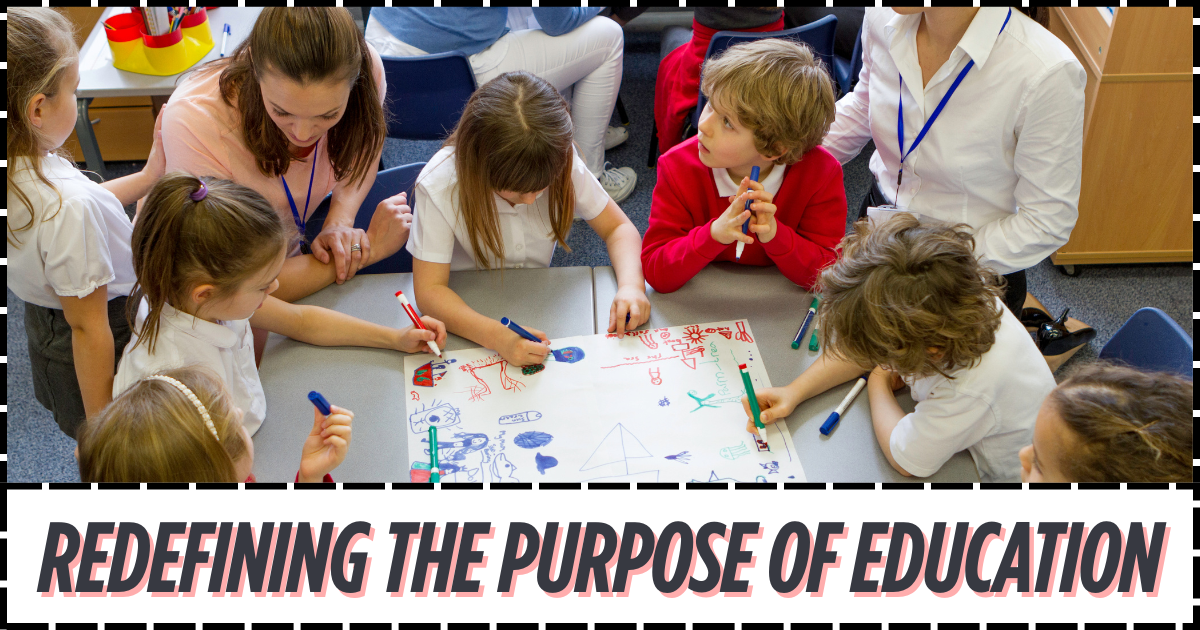Redefining the Purpose of Education: Beyond Degrees to Social Impact. The purpose of education has been redefined from degrees to social impact. This change has been made to modify and enhance the importance of real-time education. Education is not just about books and degrees, but it is a vast term and is used in every field in the world. Degrees are not as valuable as skills are in the present era. To know more about the topic “Redefining the Purpose of Education: Beyond Degrees to Social Impact”, read the complete article.
Redefining the Purpose of Education: Beyond Degrees to Social Impact
The education in the traditional period focused on degrees only. The traditional education provides students and parents with a sense of stability and predictability, ensuring that core subjects are taught comprehensively. Earlier, parents used to think that for a student, the most important thing to do was get good grades. This put a huge pressure on most kids and they lost their innovation. This made the teachers and parents worried that the education system has some problems and decided to resolve them.

The purpose of education shifted from degrees and books to social impact and innovation. The students of the present era are not forced to just study the book’s material but are also provided the basic and practical knowledge about life, skills, careers, and social issues. Students are taught leadership skills, entrepreneurship skills, management skills, and their vision of the dream they want to achieve. But the change is not easy to gaze at, let alone implement, as it undoubtedly involves modifying or completely replacing previous habits and existing power structures.
Key Points for Redefining the Purpose of Education
Shift the Focus
The first step for redefining the purpose of education is to shift the focus of education from degrees to social impact. The students will learn not only what’s written in the book but will also acknowledge the current social situations and challenges.
Modifying Curriculum
The education curriculum must be changed according to the present conditions. The students must be taught real-world challenges, ethical considerations, and skills for social innovation and change-making.
Empathy
Students must be taught about empathy, critical considerations, and a sense of responsibility towards their communities and the world. Through the integration of social justice, tolerance, and empathy-building activities, educational institutions cultivate empathetic individuals who appreciate and respect individual differences.
Training and Development
The students must be provided proper training and development to enhance their overall performance in their fields and other fields also. The students must be taught the new approach and life skills with in-hand experience.
Experiential Learning
The theoretical knowledge about any field or subject is important, but not enough. The students must have practical experience to improve themselves and find their plus and weak points. Educational institutions must arrange internships and apprentice programmes for students to learn on the field and gain practical knowledge.
More Inclusive Policy
Current systems follow a one-size-fits-all approach, whereas the reality is that in a country like India, such an approach is tough to put into practice. We need an education system that is sensitive to the myriad impacts of adversity on children from vulnerable backgrounds.
Challenges in Redefining the Purpose of Education
Though the process of redefining the purpose of education seems simple, it has its own challenges:
Rigid Mindsets: One of the major challenges in redefining the purpose of education is the rigid, traditional mindset of people. The current education system focuses on the academic development of student with studies achievements, exams, and degrees as the main measures of success. It is very difficult to change the mindset of teachers, parents, and policymakers.
Redesigning Curriculum: Redesigning the curriculum according to a whole new way that effectively integrates social impact, ethical considerations, and real-world problem-solving across various subjects is a complex task.
Educator Training and Development: Before the educators start teaching students about the redefined education, they will need to learn it themselves. The educators need to be equipped with the knowledge, skills, and pedagogical approaches required to facilitate this shift.
Systematic Inertia: Our education system is very vast and to make changes in it, it will require funds and strong leadership. The leader must have a clear vision and sustained effort, which is difficult to achieve. The decision-making cannot be done by an individual and thus will be very time-consuming.